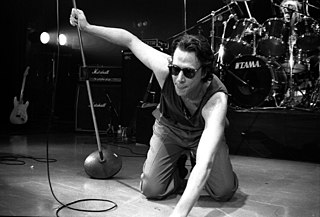A Quote by Staceyann Chin
I'm a memoir writer. I try to understand the world by taking experiences I have and making them into a story, whether it's a narrative memoir, blogging for The Huffington Post, writing poems, or talking on the screen about what has happened to me and how that relates to the world at large.
Related Quotes
Right now in American writing there is no genre as exciting as memoir - the writer can do anything, as long as it works. It's like the 1920s up in this joint. So, I'd say, experiment with how you tell the story. In the best memoir it's not the what, it's how the writer tells the what - meaning and effect through form.
In terms of style, I think the memoirist should have a novelist's skill and all the elements of a novelist's toolbox. When I read a memoir, I want to really, deeply experience what the author experienced. I want to see the characters and hear the way they speak and understand how they think. And so in that way, writing a memoir feels similar to writing a novel.
The WRITER of memoir gets incoming weirdness in very odd ways. I was recently talking to a memoir writer whose work just went meteoric - but some of the comments and communications and gestures she gets in the wake of that success are stunningly and atrociously over-personal, as if suddenly people feel like they know her and her life intimately, and have permission to transgress all her "life" boundaries.
As a writer, I was deliberately creating an alternate world, and then populating it with experiences and people that I knew in this world, but I'd shake up the mix considerably. And about the same time that the memoir was becoming the dominant popular literary form in the mid to late 90s, I started reading writers who were deliberately playing with the notion of "truth" and "fiction" - that struck me as a much more interesting way to tell certain stories, particularly in the realm of comedy.
A serious life, by definition, is a life one reflects on, a life one tries to make sense of and bear witness to. Truth in a memoir is achieved not through a recital of actual events; it is achieved when the reader comes to believe that the writer is working hard to engage with the experience at hand. What happened to the writer is not what matters; what matters is the large sense that the writer is able to make of what happened.





































